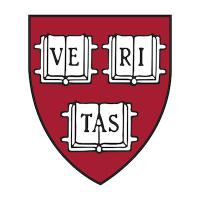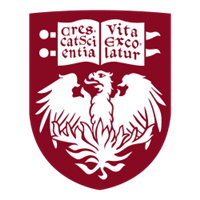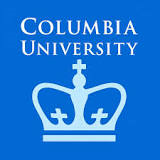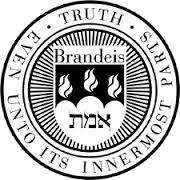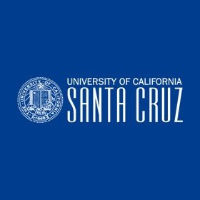What do they do?
Prepare studies for proposed transportation projects. Gather, compile, and analyze data. Study the use and operation of transportation systems. Develop transportation models or simulations.
Also known as:
Planner, Program Officer, Transportation Analyst, Transportation Data Programs Manager, Transportation Planner
-
0.6%
Change
Ranks #31 in job growth rate150Job Openings
Ranks #15 in net job growth
-
Harvard University
Cambridge, MA
-
University of Chicago
Chicago, IL
-
Columbia University in the City of New York
New York, NY
-
University of Pennsylvania
Philadelphia, PA
-
Georgetown University
Washington, DC
Looking for colleges that offer a specific major? Use the College Match Tool to find your best-matched schools and discover your estimated Net Price!
- Doctorate or Professional Degree (16%)
- Master's degree (42%)
- Bachelor's degree (34%)
- Associate's degree (4%)
- Some college, no degree (3%)
- High school diploma equivalent (1%)
- Less than high school diploma (1%)
Most Popular Majors that prepare Transportation Planners
-
#1
-
Degrees Granted
1,430
-
Female Students
895
-
Male Students
535
-
Median Starting Salary
$47,533
-
-
#2
-
Degrees Granted
1,268
-
Female Students
1,067
-
Male Students
201
-
Median Starting Salary
$35,800
-
-
#3
-
Degrees Granted
520
-
Female Students
366
-
Male Students
154
-
Median Starting Salary
$39,700
-
-
#4
-
Degrees Granted
457
-
Female Students
368
-
Male Students
89
-
Median Starting Salary
$37,307
-
-
#5
-
Degrees Granted
422
-
Female Students
338
-
Male Students
84
-
Median Starting Salary
$37,307
-
People in this career often have these skills:
- Reading Comprehension - Understanding written sentences and paragraphs in work-related documents.
- Active Listening - Giving full attention to what other people are saying, taking time to understand the points being made, asking questions as appropriate, and not interrupting at inappropriate times.
- Writing - Communicating effectively in writing as appropriate for the needs of the audience.
- Speaking - Talking to others to convey information effectively.
- Critical Thinking - Using logic and reasoning to identify the strengths and weaknesses of alternative solutions, conclusions, or approaches to problems.
- Complex Problem Solving - Identifying complex problems and reviewing related information to develop and evaluate options and implement solutions.
- Judgment and Decision Making - Considering the relative costs and benefits of potential actions to choose the most appropriate one.
- Active Learning - Understanding the implications of new information for both current and future problem-solving and decision-making.
- Systems Evaluation - Identifying measures or indicators of system performance and the actions needed to improve or correct performance, relative to the goals of the system.
- Coordination - Adjusting actions in relation to others' actions.
- Systems Analysis - Determining how a system should work and how changes in conditions, operations, and the environment will affect outcomes.
- Mathematics - Using mathematics to solve problems.
People in this career often know a lot about:
- Transportation - Knowledge of principles and methods for moving people or goods by air, rail, sea, or road, including the relative costs and benefits.
- English Language - Knowledge of the structure and content of the English language including the meaning and spelling of words, rules of composition, and grammar.
- Mathematics - Knowledge of arithmetic, algebra, geometry, calculus, statistics, and their applications.
- Geography - Knowledge of principles and methods for describing the features of land, sea, and air masses, including their physical characteristics, locations, interrelationships, and distribution of plant, animal, and human life.
- Law and Government - Knowledge of laws, legal codes, court procedures, precedents, government regulations, executive orders, agency rules, and the democratic political process.
- Computers and Electronics - Knowledge of circuit boards, processors, chips, electronic equipment, and computer hardware and software, including applications and programming.
- Administration and Management - Knowledge of business and management principles involved in strategic planning, resource allocation, human resources modeling, leadership technique, production methods, and coordination of people and resources.
People in this career often have talent in:
- Oral Comprehension - The ability to listen to and understand information and ideas presented through spoken words and sentences.
- Written Comprehension - The ability to read and understand information and ideas presented in writing.
- Oral Expression - The ability to communicate information and ideas in speaking so others will understand.
- Written Expression - The ability to communicate information and ideas in writing so others will understand.
- Fluency of Ideas - The ability to come up with a number of ideas about a topic (the number of ideas is important, not their quality, correctness, or creativity).
- Deductive Reasoning - The ability to apply general rules to specific problems to produce answers that make sense.
- Inductive Reasoning - The ability to combine pieces of information to form general rules or conclusions (includes finding a relationship among seemingly unrelated events).
- Problem Sensitivity - The ability to tell when something is wrong or is likely to go wrong. It does not involve solving the problem, only recognizing that there is a problem.
- Visualization - The ability to imagine how something will look after it is moved around or when its parts are moved or rearranged.
- Near Vision - The ability to see details at close range (within a few feet of the observer).
- Speech Clarity - The ability to speak clearly so others can understand you.
- Originality - The ability to come up with unusual or clever ideas about a given topic or situation, or to develop creative ways to solve a problem.
- Information Ordering - The ability to arrange things or actions in a certain order or pattern according to a specific rule or set of rules (e.g., patterns of numbers, letters, words, pictures, mathematical operations).
- Speech Recognition - The ability to identify and understand the speech of another person.
People in this career often do these activities:
- Communicate with the public on environmental issues.
- Prepare scientific or technical reports or presentations.
- Collaborate with technical specialists to resolve design or development problems.
- Advise others on matters of public policy.
- Develop theories or models of physical phenomena.
- Appraise environmental impact of regulations or policies.
- Interpret research or operational data.
- Develop methods of social or economic research.
- Analyze costs and benefits of proposed designs or projects.
- Evaluate civic projects or public policies.
- Prepare documentation for permits or licenses.
- Prepare research or technical reports on environmental issues.
- Design civil structures or systems.
- Prepare information or documentation related to legal or regulatory matters.
- Direct scientific activities.
This page includes data from:

 Occupation statistics: USDOL U.S. Bureau of Labor Statistics Occupational Employment Statistics
Occupation statistics: USDOL U.S. Bureau of Labor Statistics Occupational Employment Statistics


